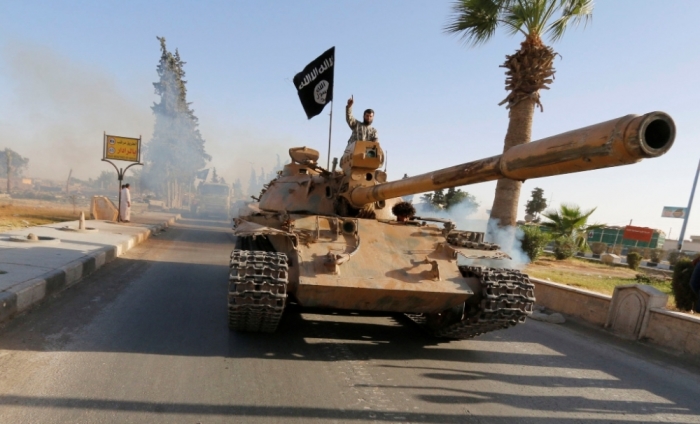US Airstrikes Against ISIS in West Iraq Signal Expansion of Obama's Strategy to Combat Terror Group

The U.S. military's first series of airstrikes in Western Iraq targeting ISIS early Sunday to protect a major dam points to the expansion of the Obama administration's strategy in Iraq, which until recently was limited to protecting U.S. offices and humanitarian responses.
"If that dam would fall into ISIL's hands or if that dam would be destroyed, the damage that that would cause would be very significant and it would put an additional and big risk into the mix in Iraq," U.S. Defense Secretary Chuck Hagel told reporters during a trip to Georgia's capital Tbilisi, according to Reuters.
Hagel, who was referring to the Haditha Dam in Iraq's Anbar Province, added that the airstrikes were launched at the request of the Iraqi government.
"They (the airstrikes) were very accurate. There was no collateral damage. ... If the Islamic State had gained control of the dam, many areas of Iraq would have been seriously threatened, even Baghdad," Sheik Ahmed Abu Risha, the leader of a pro-Iraqi government paramilitary force in west Iraq, was quoted as saying.
ISIS, which is also known as the Islamic State, is an al-Qaeda offshoot that has gained control over large parts of Syria and Iraq. The group wants to form an Islamic emirate in the Levant region through "jihad."
"We conducted these strikes to prevent terrorists from further threatening the security of the dam," Pentagon Press Secretary Rear Adm. John Kirby said in a statement. "The strikes were conducted under authority to protect U.S. personnel and facilities, support humanitarian efforts, and support Iraqi forces that are acting in furtherance of these objectives."
Announcing U.S. military involvement in Iraq last month, Obama stressed its humanitarian nature, saying it was to prevent the advancement of ISIS terrorists toward the U.S. embassy in Baghdad or the U.S. consulate in Arbil and to rescue Iraqi civilians trapped in the Mount Sinjar region at the time.
However, Obama said last week that key NATO allies are prepared to "degrade and ultimately destroy" ISIS, after U.S. Secretary of State John Kerry's meeting with diplomats from 10 countries on the sidelines of a NATO summit in Wales Friday.
"Key NATO allies stand ready to confront this terrorist threat through military, intelligence and law enforcement as well as diplomatic efforts," Obama said. "Our goal is to act with urgency but also make sure that we're doing it right, that we have the right targets, that there's support on the ground … that we have a strong political coalition."
In a joint statement Friday, Kerry and Hagel said an international coalition needs to provide military support to America's Iraqi partners, stop the flow of foreign fighters, counter ISIS financing and funding, address humanitarian crises and de-legitimize ISIS' ideology.
ISIS terrorists have killed hundreds of people in Iraq as well as beheaded two American journalists, James Foley and Steven Sotloff. Numerous members of the Christian and Yazidi minorities have also been killed, and tens of thousands of them have fled their homes.




























